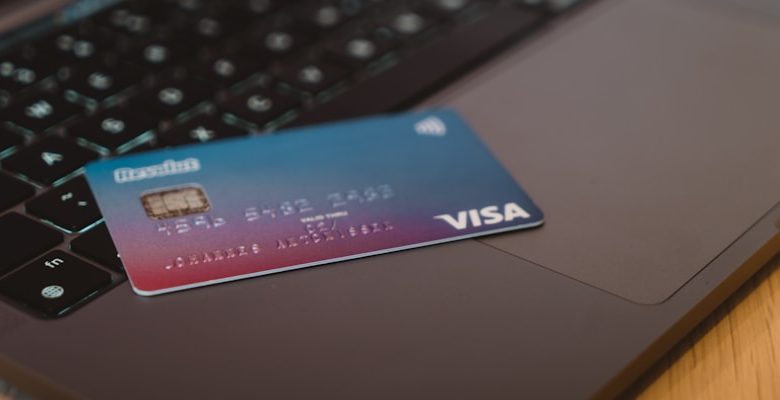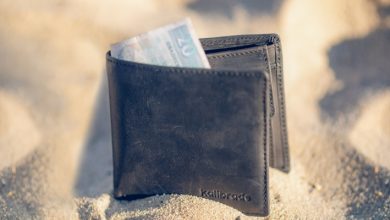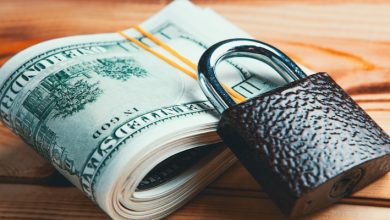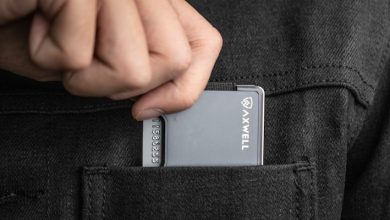Understanding the Risks of Using Public Wi-Fi for Wallet Access

- The Dangers of Connecting to Public Wi-Fi Networks
- Protecting Your Wallet Information on Public Networks
- Why Public Wi-Fi is a Haven for Cybercriminals
- Best Practices for Using Public Wi-Fi Safely with Your Wallet
- Common Threats to Your Wallet Security on Public Wi-Fi
- Steps to Minimize Risks When Accessing Your Wallet on Public Wi-Fi
The Dangers of Connecting to Public Wi-Fi Networks
Connecting to public Wi-Fi networks can expose you to various risks that could compromise your wallet access. One of the main dangers of using public Wi-Fi is the potential for hackers to intercept your sensitive information, such as passwords and credit card details. These cybercriminals can easily set up fake Wi-Fi networks in public places to trick unsuspecting users into connecting to them, allowing them to steal your personal data without your knowledge.
Another risk of connecting to public Wi-Fi networks is the possibility of falling victim to a man-in-the-middle attack, where a hacker intercepts the communication between your device and the network you are trying to access. This can enable them to eavesdrop on your online activities and gain access to your wallet information. Moreover, public Wi-Fi networks are often unsecured, making it easier for malicious actors to launch various cyber attacks aimed at stealing your financial data.
Furthermore, using public Wi-Fi for wallet access can also make your device vulnerable to malware and other forms of malicious software. Hackers can inject malware into public Wi-Fi networks, which can then infect your device when you connect to them. This malware can be used to steal your wallet credentials, track your online activities, and even take control of your device remotely.
Protecting Your Wallet Information on Public Networks
When accessing your wallet on public networks, it is crucial to take precautions to protect your sensitive information from potential hackers. Here are some tips to safeguard your wallet information:
- Consider using a virtual private network (VPN) to encrypt your data and keep it secure from prying eyes.
- Avoid accessing your wallet on public Wi-Fi networks that are unsecured, as these are more vulnerable to cyber attacks.
- Make sure to enable two-factor authentication for an extra layer of security when logging into your wallet.
- Avoid entering any personal or financial information on websites that do not have HTTPS encryption.
- Regularly monitor your wallet for any suspicious activity or unauthorized transactions.
By following these simple steps, you can protect your wallet information while using public networks and reduce the risk of falling victim to identity theft or financial fraud.
Why Public Wi-Fi is a Haven for Cybercriminals
Using public Wi-Fi for accessing your wallet is risky because it is a haven for cybercriminals to carry out their malicious activities. When you connect to a public Wi-Fi network, your data is transmitted over an unsecured connection, making it easy for hackers to intercept and steal sensitive information such as your login credentials and financial details.
Cybercriminals often set up fake Wi-Fi hotspots in public places to trick unsuspecting users into connecting to them. Once connected, they can eavesdrop on your online activities and capture valuable information without your knowledge. This puts your wallet at risk of being compromised, leading to potential financial loss and identity theft.
Furthermore, public Wi-Fi networks are typically unencrypted, making it even easier for cybercriminals to access and exploit your data. Without the proper security measures in place, your personal information is vulnerable to being intercepted and used for fraudulent purposes.
It is essential to be cautious when using public Wi-Fi for accessing your wallet to avoid falling victim to cybercrime. By understanding the risks involved and taking necessary precautions such as using a virtual private network (VPN) or mobile data for secure connections, you can better protect yourself from potential threats and safeguard your financial information.
Best Practices for Using Public Wi-Fi Safely with Your Wallet
When using public Wi-Fi to access your wallet, it is important to follow best practices in order to protect your sensitive information from potential security risks.
- One of the best practices for using public Wi-Fi safely with your wallet is to avoid accessing your financial accounts or making online transactions when connected to an unsecured network.
- Consider using a virtual private network (VPN) when connecting to public Wi-Fi to encrypt your data and protect your online activity from prying eyes.
- Always ensure that your device’s security features, such as firewalls and antivirus software, are up to date to help prevent unauthorized access to your wallet.
- Be cautious of fake Wi-Fi networks that may mimic legitimate hotspots in order to steal your login credentials or financial information. Verify the network’s legitimacy with the establishment or use your mobile data instead.
- Avoid accessing sensitive information such as your wallet balance, credit card details, or personal identification numbers (PINs) when using public Wi-Fi to minimize the risk of identity theft or fraud.
By following these best practices, you can help safeguard your wallet and financial information while using public Wi-Fi networks.
Common Threats to Your Wallet Security on Public Wi-Fi
When using public Wi-Fi for accessing your wallet or making online transactions, there are several common threats to your wallet security that you should be aware of.
- One of the main risks is malware that can infect your device when connected to an unsecured network. This malicious software can steal sensitive information such as login credentials, credit card details, and other personal data.
- Man-in-the-middle attacks are another concern when using public Wi-Fi. Hackers can intercept the communication between your device and the website you are accessing, allowing them to eavesdrop on your transactions and potentially steal your financial information.
- Another threat is unsecured networks themselves. Public Wi-Fi networks are often not encrypted, making it easier for cybercriminals to intercept data transmitted between your device and the network.
- Phishing attacks are also a common risk when using public Wi-Fi for wallet access. Hackers can create fake websites or emails that look legitimate to trick you into providing your login credentials or other sensitive information.
- Lastly, session hijacking is a technique used by hackers to take over your active session on a website while you are connected to a public Wi-Fi network. This allows them to access your account and perform unauthorized transactions.
Steps to Minimize Risks When Accessing Your Wallet on Public Wi-Fi
When accessing your wallet on public Wi-Fi, it is crucial to take steps to minimize risks and protect your sensitive information from potential threats. Follow these guidelines to enhance your security:
- Avoid accessing your wallet on public Wi-Fi networks whenever possible. If you must do so, consider using a Virtual Private Network (VPN) to encrypt your connection and add an extra layer of security.
- Make sure your wallet application is up to date with the latest security patches and updates to protect against known vulnerabilities.
- Enable two-factor authentication for an additional level of security when accessing your wallet, requiring a second form of verification beyond just your password.
- Avoid entering sensitive information, such as passwords or private keys, on public Wi-Fi networks where malicious actors could potentially intercept your data.
- Consider using a separate device or a dedicated secure hardware wallet for accessing your cryptocurrency wallet to minimize the risk of exposure to malware or other security threats.
By following these steps, you can reduce the likelihood of falling victim to cyber attacks or having your personal information compromised when accessing your wallet on public Wi-Fi networks. Stay vigilant and prioritize security to safeguard your assets and financial well-being.



